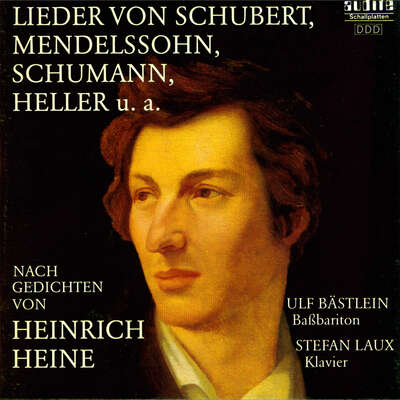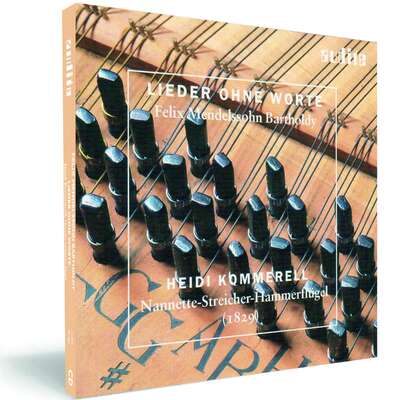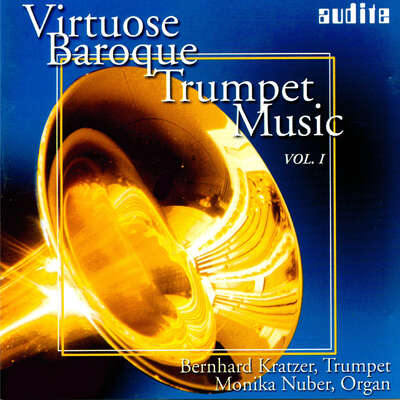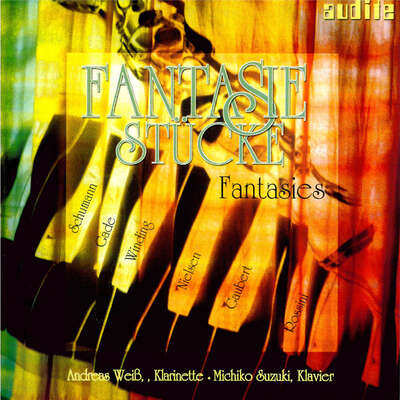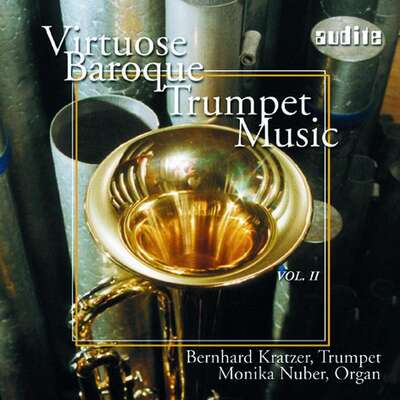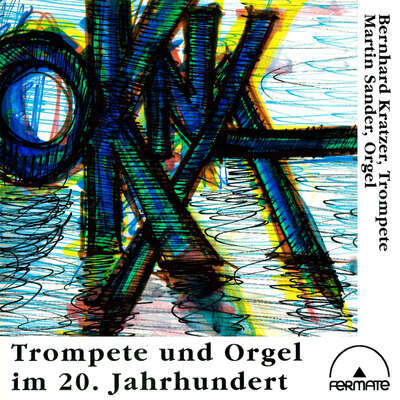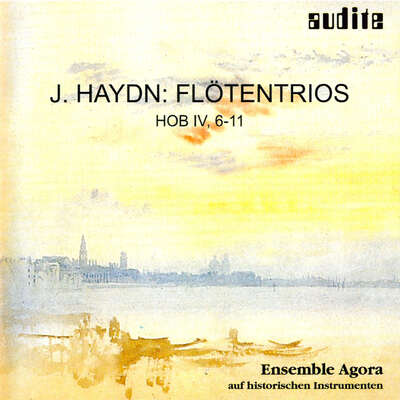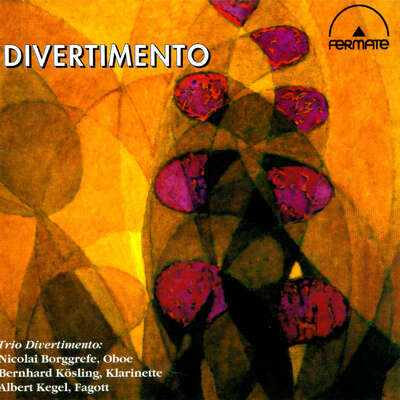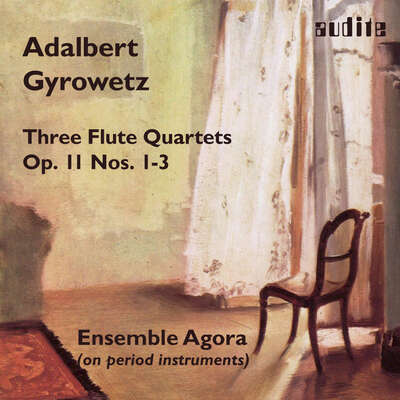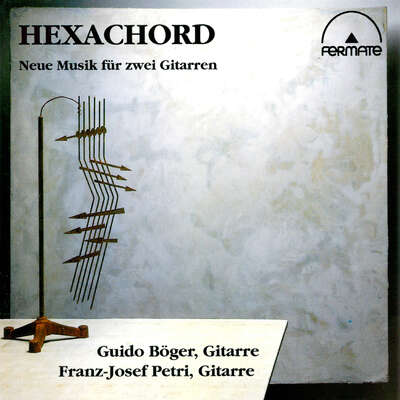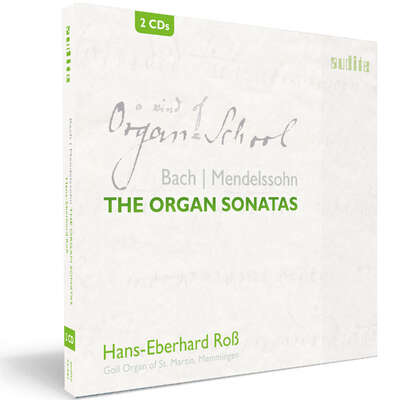
Mendelssohn’s Piano Trios of 1839 and 1845 are, along with the piano trios of Beethoven and Schubert, pinnacles of the genre in the nineteenth century.more
Mendelssohn’s Piano Trios of 1839 and 1845 are, along with the piano trios of Beethoven and Schubert, pinnacles of the genre in the nineteenth century.
Details
| Felix Mendelssohn: Piano Trios | |
| article number: | 92.550 |
|---|---|
| EAN barcode: | 4022143925503 |
| price group: | ACX |
| release date: | 28. January 2011 |
| total time: | 57 min. |
Bonus Material
Informationen
This recording of the Mendelssohn Trios marks the beginning of the cooperation between audite and the Swiss Piano Trio whose recordings are issued on audite from 2011. A recording of the complete Schumann Piano Trios is planned next, with the first volume scheduled for release in June 2011.
Mendelssohn’s Piano Trios of 1839 and 1845 are, along with the piano trios of Beethoven and Schubert, pinnacles of the genre in the nineteenth century. Robert Schumann saw in them a reconciliation of contradictions which left a lasting impression on musical history at the time: the conflicts between lyrical and dramatic form, between intimacy and virtuoso performance, and finally between a universal comprehensibility and subjectivisation. In both trios Mendelssohn found solutions which captivate his listeners through the plasticity of their thematic and melodic invention, their rhythmic succinctness, their formal originality and, particularly, their uninterrupted sound-stream, anticipating Reger.
The Swiss Piano Trio with Martin Lucas Staub (piano), Angela Golubeva (violin) and Sébastien Singer (cello) has won numerous prizes at international competitions, including the International Chamber Music Competition Caltanissetta in Italy and the Johannes Brahms Competition in Austria. Founded in 1998, the ensemble has a busy performing schedule and has played in over 35 countries worldwide. The Trio performs chamber music in great concert halls across the globe. As an ensemble of soloists, the three musicians regularly appear with renowned orchestras. Numerous recordings for radio, television and on disc document the artistic activities of the ensemble.
Reviews
http://theclassicalreviewer.blogspot.de | Saturday, 28 April 2012 | April 28, 2012 Mendelssohn - a lightweight composer?
The two piano trios Op.49 and Op.66 are particularly fine works especiallyMehr lesen
Stereo | 6/2011 Juni | OPf | June 1, 2011
Klaviertrios Nr. 1 + 2
Schweizer Klaviertrio
Wie schön muss Mendelssohns erstes Klaviertrio klingen? "Nicht zu sehr",Mehr lesen
Fono Forum | 06/11 Juni 2011 | Ole Pflüger | June 1, 2011 Gar schön?
Wie schön muss Mendelssohns erstes Klaviertrio klingen? "Nicht zu sehr", scheint die Antwort des Schweizer Klaviertrios zu sein. Es ist etwas dran.Mehr lesen
Robert Schumann nannte das Werk einmal eine "eine gar schöne Komposition, die nach Jahren noch Enkel und Urenkel erfreuen wird". Golubeva, Singer und Staub widersprechen Schumann, indem sie ihm eine Menge derben Witz und schroffe Melodiebrocken abgewinnen. Bei ihnen ist Mendelssohn mehr als nur "gar schön", er darf auch mal schreien und keifen. Aus dem Kopfsatz von Mendelssohns zweitem Klaviertrio machen die Schweizer dann ein mitreißendes Perpetuum mobile. Vom ersten Klavierton an ist diese Musik nicht aufzuhalten. In den halsbrecherischen Läufen des Scherzos bekräftigen die Musiker diesen Eindruck und beweisen dabei auch noch einmal, wie schön es sein kann, auf Schönheit zu verzichten.
International Record Review | May 2011 | Mark Tanner | May 1, 2011
That Schumann considered Mendelssohn to be a natural successor to Beethoven, and went on to prize his piano trios so ardently, was a strong indicationMehr lesen
Written six years apart, in 1839 and 1845, Mendelssohn's trios are cast in four movements and have a similar duration. Additionally, they are both in minor keys, suggestive of something rather splendid or perhaps even narrative in vein. Wolfgang Rathert, author of the erudite if slightly scholarly notes, reminds us of the especial function of minor keys in Beethoven, as well as in Mozart, and argues that Mendelssohn's particular use of minor tonality holds a mirror to the nineteenth century's increasingly sophisticated tastes. Interestingly, both trios, which in general make rather more of the piano part than of the strings, are radiant and optimistic in their dramatic gestures, not in the least bit introspective or doleful , even in their second movements. This new recording from the Swiss Piano Trio is beautifully presented by Audite, with sharp graphics and a nicely contemporary feel to the fold-out cardboard box.
The Trio in D minor , Op. 49 is confidently captured by the players – a nicely impulsive opening movement with a good sense of lyricism and a clear overview in place. Pianist Martin Lucas Staub drives the impetus assertively with an ambitious tempo, and the strings sustain a robust connection with the music's agitated under current. The individual contributions are strong, although I feel the ensemble's best intentions have not always been fully realized in this region of the recording as regards balance. I'd like a fraction more of the piano when all parts are busy, and indeed when there are short-lived soloistic interjections to enjoy (the opening and closing sections to the Andante con moto tranquillo are good examples of this, too). Conversely, the violin seems to be just a little too forward in the mix, overall, particularly during the more impassioned sections, so that the equally important piano and cello textures come over as a little hemmed in. That said, there are some precious softer moments in the ensemble, both in this movement and in the conclusion to the Scherzo, which is ably done. The finale has good drive and the overall impact improved here quite noticeably – the ensemble seemed to relax , introducing greater ingenuity and freedom into this amiable Schubertian melody. There can be no doubting the youthful verve of these musicians, and the closing stages to this movement are as fiery and effervescent as you could hope for , if perhaps slightly missing some of the opportunities to drop the dynamic before picking up the intensity once again.
The Op. 66 Trio, dedicated to Louis Spohr, is in C minor, and it was in this key that Mendelssohn first explored the idea of a piano trio while still a young man; it emerged as more of an experiment than an accomplished work, however. As I hinted at earlier, the similarities in approach to the formal construction and sense of dramatic destiny in both the published trios are such that Mendelssohn clearly felt satisfied with what he had achieved in his D minor Trio. The Swiss Trio seems more at ease with the elasticity of this slightly later work, grabbing my attention rather more quickly than in the D minor. I particularly enjoy the Andante espressivo, which has a lovely serenity to it and some delightful coupling from the strings. The Scherzo is very successful too , with sterling work from Staub, whose glycerine fingerwork carries the momentum without any hint of compromise; here too, a better sense of balance and of the leggiero lines emerges, and the sudden switches in temperament are very well thought through.
My impression of the playing, and indeed of the recording as a whole, grew quite significantly during my survey of this disc. I would very much like to hear these players in the flesh , where I am sure they are capable of even greater vitality and communication.
Fanfare | May/June 2011 | Jerry Dubins | May 1, 2011
My first reaction to receiving this release for review was, “Oh no, not another recording of Mendelssohn’s piano trios!” This now makes 22Mehr lesen
I wasn’t quite sure what to expect from the Swiss Piano Trio, an ensemble I’d not previously encountered, though to confess, I did begin my listening with the difficult-to-dislodge idea in my head that Mendelssohn’s piano trios did not need another recording, no matter how good it might be. Imagine then my shock to have all of my doubts and reservations instantly swept away by the most captivating performances of these works I think I’ve ever heard.
Swift in tempo and fleet of foot, but not rushed or breathless; leggiero in bowing and phrasing, but not lightweight or thin in tone; rascally but not roguish in the Scherzo movements; emotionally expressive but not cloying in the Andantes; and strongly persuasive without making over-earnest pie of Mendelssohn’s opening Allegros, the Swiss ensemble plays these works with surpassing elegance, beauty, and absolute technical control and perfection.
In no small measure, this gorgeously recorded hybrid surround-sound Audite SACD is a glory to modern recording technology. The instruments are perfectly placed and perfectly balanced, and the sound is state-of-the-art. I’m not usually one to say, “Throw out all other recordings you have of these works,” but if I were so inclined, this new release would come perilously close to prompting me to say it. These magnificently recorded fantastic performances are urgently recommended.
www.ResMusica.com | 28 avril 2011 | Jean-Luc Caron | April 28, 2011 Une lecture probe de Mendelssohn
« C’est le maître trio de notre époque… » s’exclama RobertMehr lesen
Westdeutsche Zeitung | Samstag, 9. April 2011 | wall | April 9, 2011 Dynamisches Trio
Rasant geht es zu in den schnellen Sätzen der beiden Klaviertrios FelixMehr lesen
Kulimu | 37. Jg. 2011, Heft 1 | uwa | April 1, 2011
Felix Mendelssohn Bartholdy: Klaviertrio Nr. 1 u. 2
Schweizer Klaviertrio
Seit dem das Schweizer Klaviertrio 2005 den ersten Preis beimMehr lesen
Pizzicato | N° 212 - 4/2011 | Alain Steffen | April 1, 2011 Ein Meisterstreich
Gerade bei Aufnahmen wie dieser ist es eine Freude für den Rezensenten, die Bestnote Supersonic zu vergeben. Ich muss zugeben, dass ich dieseMehr lesen
Dem Schweizer Klaviertrio (Angela Golubeva, Violine, Sébastien Singer, Cello und Martin Lucas Staub, Klavier) gelingt auf Anhieb ein Meisterstreich und der gefährliche Spagat zwischen Unterhaltung, Virtuosität, technischer Versiertheit und kunstvoller Gestaltung. Sicher, Mendelssohns Trios sind dankbare Stücke, aber was das Schweizer Klaviertrio aus dieser Musik macht, mit welcher Dynamik sie diese Werke angehen und mit welch hervorragender Technik sie das Opus 49 und das Opus 66 auszuloten verstehen, ist eindeutig große Kunst. Ja, Kammermusik kann tatsächlich Spaß machen und ebenso intensive wie aufregende Momente bescheren. Eigentlich bräuchte man bei dieser übrigens hervorragend transparent und präsent klingenden SACD-Aufnahme überhaupt keine Worte zu verlieren. Musik und Interpreten sprechen für sich.
Musik & Theater | April 2011 | Fritz Trümpi | April 1, 2011 Feinfasriger Mendelssohn
Obschon sich das Schweizer Klaviertrio eine erfrischende JugendlichkeitMehr lesen
www.musicweb-international.com | Tuesday March 29th | Kevin Sutton | March 29, 2011 Felix Mendelssohn
Robert Schumann, in the Neue Zeitschrift für Musik, hailed Felix Mendelssohn as the Mozart of the nineteenth century, the "brightest musician whoMehr lesen
Mendelssohn's own piano playing must have been remarkable, given the sheer virtuosity of the piano writing in these works. The c minor trio opens with a rollicking theme and the piano never quits. A beautifully lyrical Andante follows, and Mendelssohn shows his ability to create a gorgeous melody that, while somewhat sentimental, is never over the top or maudlin. A fleeting scherzo is followed by a jaunty finale. The second trio is no less a masterpiece, flashy without being gaudy, packed full of the wonderful tunes that only a Schubert could match. It struck me as amusing that the theme of the Scherzo is remarkably similar to Legrenzi's Che fiero costume, known the world over to beginning students of singing.
The Schweizer Trio is nothing less than superb in these performances. Particular kudos goes to Martin Lucas Staub, whose keyboard skills are beyond reproach. It is fairly evident that Mendelssohn was thinking beyond the salon when he composed these works. They are so full in scope and rich in tone that he must have had a concert hall in mind. Having said that, Mr. Staub never lets the formidable piano parts overwhelm his string playing colleagues, who by the way, play with spotless intonation, elegant phrasing and youthful panache. I particularly admired the manner in which this ensemble was able to take the fast movements at an almost roller-coaster tempo, yet never leave the listener feeling out of breath. The playing is of such high quality that the music just flows out effortlessly. One is left believing that there is no other way to play this music, and this is a delightful quality. I was thrilled by repeated listening to this disc.
Ensemble - Magazin für Kammermusik | März 2011 | Carsten Dürer | March 1, 2011 Mit Spannung weiterhören
Wenn es um das Genre Klaviertrio geht, dann stellen die beiden von FelixMehr lesen
Crescendo | Jg. 14, Nr. 2 (März-Mai 2011) | Antoinette Schmelter De Escobar | March 1, 2011
Swiss Piano Trio
WIE MEDELSSOHN SELBST
Wie ein Espresso: Klassik in hochkonzentrierter Form. Seit 1998 spielenMehr lesen
Kulturspiegel | März 2011, Heft 3 | Johannes Saltzwedel | March 1, 2011 Felix Mendelssohn Bartholdy: "Klaviertrios" (Audite)
Viele Ensembles haben diese Werke gespielt; und schlecht klingen sie schonMehr lesen
Spiegel online | Montag, 28. Februar 2011 | Johannes Saltzwedel | February 28, 2011 Felix Mendelssohn Bartholdy: "Klaviertrios" (Audite)
Viele Ensembles haben diese Werke gespielt; und schlecht klingen sie schonMehr lesen
La Liberté | 12 février 2011 | EH | February 12, 2011 L’INSPIRATION PUISSANTE DU TRIO AVEC PIANO
Difficile de résumer la musique de Mendelssohn, autant héritier de laMehr lesen
Der Landbote | 27. Januar 2011 | Herbert Büttiker | January 27, 2011 Im innersten Zirkel
Das Klaviertrio ist neben dem Streichquartett die Nummer zwei derMehr lesen
Südkurier | Nr. 15 (20. Januar 2011) | Martin Preisser | January 20, 2011 Fiebrig-feuriger Mendelssohn
Das Schweizer Klaviertrio legt eine neue CD vor. Die CD macht den AnfangMehr lesen
Tagblatt Online | 11. Januar 2011 | Martin Preisser | January 11, 2011 Start mit Mendelssohn
Martin Lucas Staub, Sie haben eine neue Reihe von Klaviertrio-EinspielungenMehr lesen
Thurgauer Zeitung | 11. Januar 2011 | Martin Preisser | January 11, 2011 Start mit Mendelssohn
Martin Lucas Straub, Sie haben eine neue Reihe vonMehr lesen
Thurgauer Zeitung | 11. Januar 2011 | Martin Preisser | January 11, 2011 Schweizer Klaviertrio mit fiebrig-feurigem Mendelssohn
In letzter Zeit war das Schweizer Klaviertrio vor allem internationalMehr lesen
www.jazzstore.com | Mike D. Brownell | November 30, 2010
Composed in 1839 and 1845, respectively, the two mature piano trios ofMehr lesen
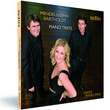



























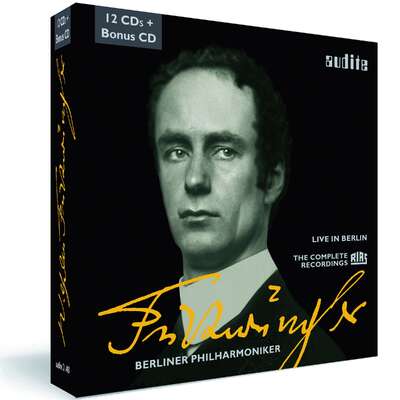
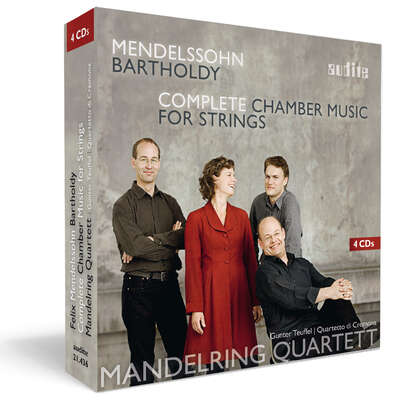
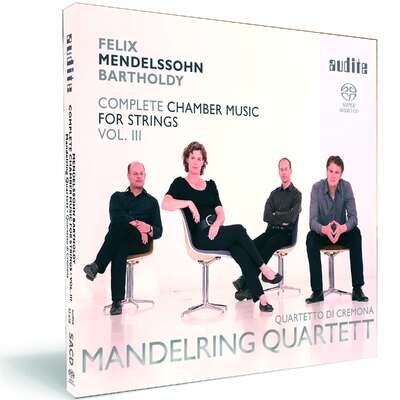
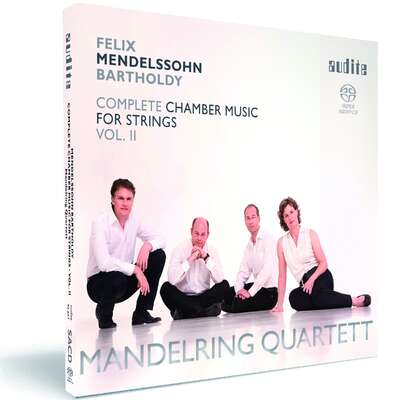
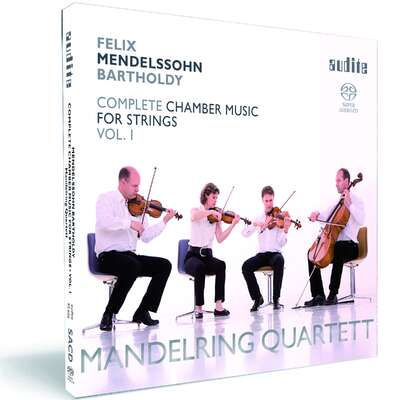
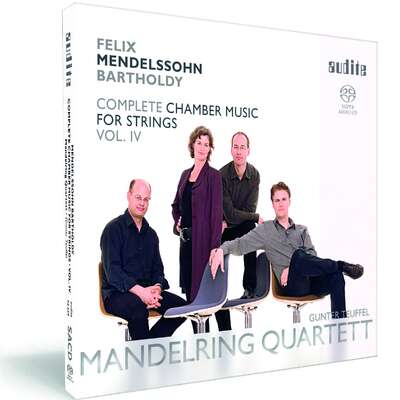
![23446 - k[NOW]n Piano](/image/product/3d/carousel/23446-known_piano.jpg)
